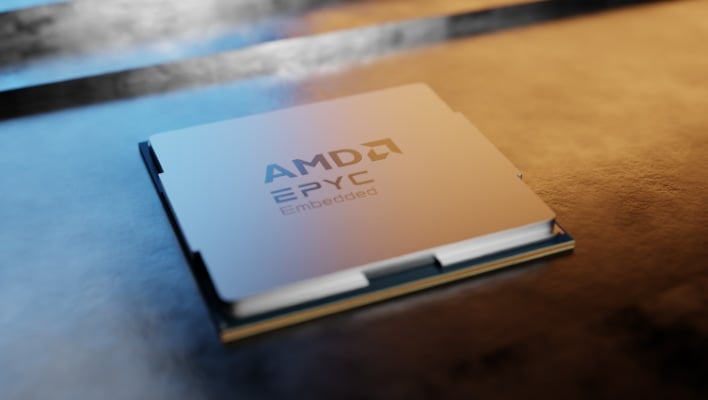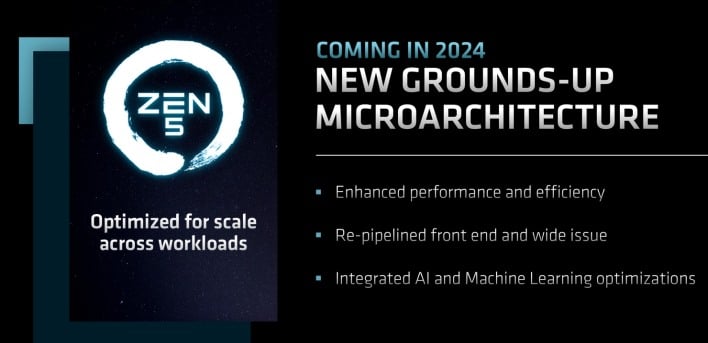What AMD's Latest Linux Patches Reveal About Upcoming Zen 5 CPUs

Today's news concerns AMD's next-generation processors and their support in Linux. Patches for the open-source operating system add new hardware IDs for AMD Family 26 processors. What's Family 26? Well, we don't actually know officially, but Family 25 encompasses all Zen 3 and Zen 4 processors. Zen 3 was a major step forward architecturally from Zen 2, and likewise, Zen 5 is supposed to be major architectural redesign from Zen 4.
So saying, Family 26 looks like it's almost assuredly the designation used for AMD's next-gen CPUs, and that family has just gained support not only for identification in the kernel but also in the k10temp monitoring driver as well as the AMD64 Error Detection and Correction (EDAC) driver. Within Family 26, AMD has defined models that correspond to both EPYC processors as well as client CPUs.

That information comes from within the EDAC driver, which also reveals that next-gen EPYC server CPUs are likely to top out at twelve-channel memory just like the current-generation parts. No word on whether that'll be the currently-available DDR5 memory or whether those parts will ship with support for next-gen DDR6, but our money's on DDR5 still.
These are just the first steps toward enabling the use of Linux on Zen 5 processors, but as Linux journalist laureate Michael Larabel writes over at his site Phoronix, AMD was once known for poor Linux support, with basic software enablement like this coming late, even post-launch for older hardware. Linux is the operating system of choice in the world of high-performance computing, though; if the company wants to compete in that market, it has to have good Linux support.


